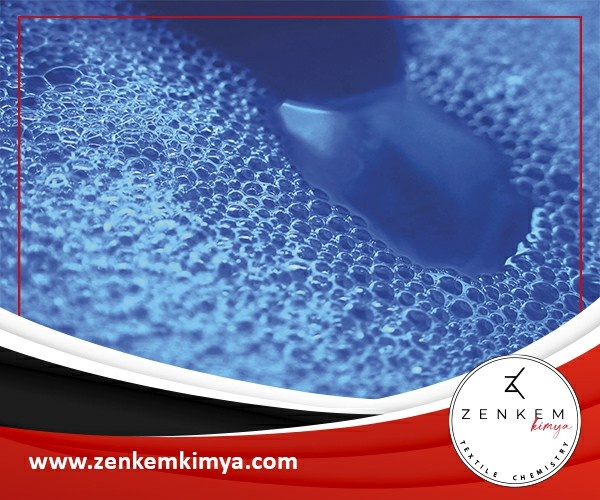How Defoamers Are Used to Prevent Foam in Food and Beverage Production
How Defoamers Are Used to Prevent Foam in Food and Beverage Production
Blog Article
Discover the Top Advantages of Using Defoamers in Industrial Processes
The utilization of defoamers in industrial processes offers an array of compelling advantages that can enhance operational effectiveness and item quality. By efficiently regulating foam manufacturing, these agents not only enhance product circulation yet additionally contribute to considerable expense decreases and boosted sustainability. The implications of adopting defoamers may be a lot more extensive than originally regarded.
Boosted Process Effectiveness
Enhancing commercial procedures often involves dealing with lathering problems, which can impede functional performance. Foam development can conflict with the appropriate performance of devices, minimize the efficient use of sources, and make complex the surveillance of essential criteria. By applying defoamers, sectors can successfully alleviate these problems, causing streamlined operations and improved efficiency.
Defoamers work by destabilizing the foam framework, permitting quick collapse and considerable reduction in foam volume. This action not just improves the flow of materials via devices, such as reactors, mixers, and pipes, yet likewise minimizes interruptions brought on by foam overflow. Tools downtime is decreased, permitting for a much more continuous and reliable production procedure.
Additionally, the usage of defoamers can result in reduced power consumption. With much less foam to manage, pumps and compressors can run a lot more efficiently, causing lower functional costs and a general improvement in procedure throughput. Ultimately, the strategic use defoamers not just addresses instant frothing challenges yet also adds to an extra effective commercial environment, fostering an affordable benefit in a demanding market.
Improved Product Top Quality
The combination of defoamers in commercial processes plays a critical role in improving item quality. By successfully controlling foam formation, defoamers add to the uniformity and uniformity of final items. Excessive foam can bring about aeration, which adversely impacts the structure and security of solutions, particularly in markets such as food and finishings, drugs, and drinks.

Moreover, defoamers promote much better mixing and diffusion of components, leading to homogeneity in solutions. This is crucial in applications where precise ingredient proportions are vital for performance and safety and security. Furthermore, the removal of foam can minimize the risk of contamination throughout production, more protecting item stability.
Inevitably, by enhancing item high quality, defoamers not just improve consumer satisfaction however additionally strengthen brand name credibility. Their duty in preserving high-grade requirements emphasizes their relevance in contemporary commercial processes.
Expense Decrease Benefits
Carrying out defoamers in industrial processes can cause significant price reduction advantages. By effectively managing foam development, defoamers decrease product loss during production, thereby enhancing product usage. This decrease in waste equates straight right into reduced raw product prices, boosting general functional performance.
Additionally, using defoamers can decrease energy usage. Too much foam can hinder devices performance, leading to enhanced energy needs to maintain manufacturing degrees. By alleviating foam, defoamers promote smoother procedures, permitting machinery to run much more effectively and decreasing energy expenditures.

Additionally, defoamers can shorten handling times. By utilizing defoamers, sectors can improve their procedures, leading to faster turnaround times and improved throughput.

Environmental Influence Mitigation
In industrial processes, the use of defoamers plays an important role in mitigating ecological impacts connected with foam generation. Foam can lead to significant functional inadequacies, resulting in enhanced discharges and waste generation. By properly regulating foam, defoamers assist maintain procedure performance, consequently decreasing the general environmental footprint of procedures.
Additionally, excessive foam can overflow control systems, resulting in spills that may contaminate soil and water sources. Defoamers aid decrease this danger by making sure that frothing does not surpass recommended restrictions, promoting conformity with ecological laws. This aggressive technique not only safeguards ecological communities but additionally enhances the sustainability of commercial practices.
Furthermore, making use of defoamers can decrease energy usage in numerous procedures. defoamers. Reducing foam formation diminishes the requirement for additional energy-intensive steps, such as boosted frustration or pumping, which might or else be needed to take care of foam. The adoption of defoamers aligns with broader sustainability objectives by advertising power effectiveness while reducing the carbon footprint of industrial tasks.
Eventually, integrating defoamers into industrial procedures is a strategic measure that supports ecological stewardship and accountable resource management.
Flexibility Across Industries
Throughout various industries, defoamers demonstrate amazing adaptability, adjusting to the details demands of varied applications. In the food and beverage industry, as an example, defoamers are vital to keeping item top quality by protecting against foam development during handling, which can impact texture and flavor. In the pharmaceutical sector, defoamers make certain the security of formulas, enhancing product efficiency and consistency.
In the chemical production realm, defoamers assist in smoother operations by reducing foam in reaction vessels, thus improving return and lowering downtime. The paper and pulp market counts on defoamers to boost the efficiency of pulp handling and paper manufacturing, guaranteeing ideal product honesty. In addition, in wastewater treatment facilities, defoamers play a crucial duty in controlling foam throughout oygenation processes, resulting in better treatment results.
The adaptability of defoamers includes the oil and gas industry, this contact form where they help in taking care of foam in drilling liquids and production procedures. By customizing formulations to satisfy certain sector needs, defoamers function as vital devices that improve functional performance, item quality, and overall procedure performance across a plethora of industries. Their adaptability underscores their value in modern industrial applications.
Final Thought
In conclusion, the application of defoamers in industrial processes presents various advantages, including boosted efficiency, improved product quality, substantial price decreases, and positive environmental influences. Their capacity to efficiently control foam formation contributes to functional connection and resource optimization. The flexibility of defoamers across varied markets underscores their hop over to these guys critical duty in promoting sustainable techniques and profitability. The combination of defoamers stands for a strategic approach to addressing obstacles connected with foam monitoring in various making settings.
Inevitably, the critical use of defoamers not just addresses immediate frothing challenges yet additionally contributes to an extra reliable commercial ecosystem, promoting a competitive advantage in a demanding market.
In industrial processes, the use of defoamers plays an essential role in mitigating ecological effects linked with foam generation. By effectively managing foam, defoamers assist maintain procedure effectiveness, therefore lowering helpful site the total ecological footprint of operations.
Furthermore, in wastewater therapy facilities, defoamers play a vital duty in regulating foam throughout oygenation processes, leading to improved therapy outcomes.
Report this page